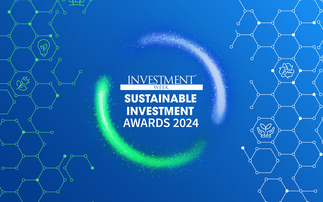There is an urgent need to transition to a low-carbon economic model in order to reverse the manmade damages made to the environment. Not doing so would risk health, livelihoods, food security, water supply, human security and economic growth. The most recent instalment of the Intergovernmental Panel on Climate Change (IPCC) report, published on 9 August 2021, clearly outlines the state of the climate emergency and calls for an immediate and concerted effort to drastically reduce greenhouse gases and mitigate climate change.
Since the launch of the Janus Henderson Global Sustainable Equity Strategy in 1991, we have had clearly defined principles concerning the types of businesses we allocate capital to. A distinguishing feature of the strategy is its low carbon approach. Not only do we believe that this is the right thing to do for the environment, but we believe it makes good investment sense to avoid companies that are heavily exposed to climate-related risk and to invest in climate-related opportunities.
The Global Sustainable Equity Strategy has a carbon footprint that is significantly lower than the benchmark index
Source: Janus Henderson Investors, ISS Climate Impact, latest available data as at 31 December 2020. Benchmark: MSCI World Total Return Index. Average portfolio tCO2e based on the Global Sustainable Equity Fund (OEIC).
To address the climate issues that are emphasised in the IPCC report, we believe that the private sector will need to be instrumental in developing strategies which contribute to achieving net-carbon goals in order to support a carbon neutral economy. Investors will play an important role in this transition.
How can investors drive change?
The Global Sustainable Equity Team at Janus Henderson are co-founders of the Net Zero Carbon 10[1] (NZC10) commitment, alongside other asset management firms and the University of Oxford. The initiative sets ambitious yet achievable targets for reducing carbon emissions in the corporate sector. To do this effectively, NZC10 equips fund managers with a systematic framework to align their investment policies to the requirements for carbon neutrality, rather than just emissions reduction.
The team's low carbon approach to investing, which is woven into the investment process, means that the strategy has supported the impact of:
- 33 million metric tonnes of CO2e (carbon dioxide equivalent) emissions avoided - the equivalent to saving emissions from eight coal-fired power plants or annual energy of 4m homes or 7m cars off the road.
- 213 GWh of renewable energy generated - which could provide annual electricity for 20,000 homes in the US.[2]
We believe that only an active management solution can deliver a truly low carbon portfolio and, at the same time, specifically invest in companies playing a positive role in the transition to a low carbon economy.
Read the Global Sustainable Equity Team's latest Annual Sustainability Report to find out more about how investors can drive change.
Important information
This document is intended solely for the use of professionals, defined as Eligible Counterparties or Professional Clients, and is not for general public distribution. Past performance is not a guide to future performance. The value of an investment and the income from it can fall as well as rise and investors may not get back the amount originally invested. There is no assurance the stated objective(s) will be met. Nothing in this document is intended to or should be construed as advice. This document is not a recommendation to sell, purchase or hold any investment.There is no assurance that the investment process will consistently lead to successful investing. Any risk management process discussed includes an effort to monitor and manage risk which should not be confused with and does not imply low risk or the ability to control certain risk factors.
Various account minimums or other eligibility qualifications apply depending on the investment strategy, vehicle or investor jurisdiction. We may record telephone calls for our mutual protection, to improve customer service and for regulatory record keeping purposes.
Issued in Europe by Janus Henderson Investors. Janus Henderson Investors is the name under which investment products and services are provided by Janus Capital International Limited (reg no. 3594615), Henderson Global Investors Limited (reg. no. 906355), Henderson Investment Funds Limited (reg. no. 2678531), Henderson Equity Partners Limited (reg. no.2606646), (each registered in England and Wales at 201 Bishopsgate, London EC2M 3AE and regulated by the Financial Conduct Authority) and Henderson Management S.A. (reg no. B22848 at 2 Rue de Bitbourg, L-1273, Luxembourg and regulated by the Commission de Surveillance du Secteur Financier). Investment management services may be provided together with participating affiliates in other regions.
Janus Henderson, Janus, Henderson, Intech, Knowledge Shared, Knowledge. Shared and Knowledge Labs are trademarks of Janus Henderson Group plc or one of its subsidiaries. © Janus Henderson Group plc.
[1] The scheme is due to launch officially in 2021. For more information please see https://p1-im.co.uk/research-articles/net-zero-carbon-10-naz10/
[2] The average annual consumption for a US household is 10,649 Kwh, which means 213 GWh could provide annual electricity needs for 20,000 US homes.
This article was funded by Janus Henderson Investors
















